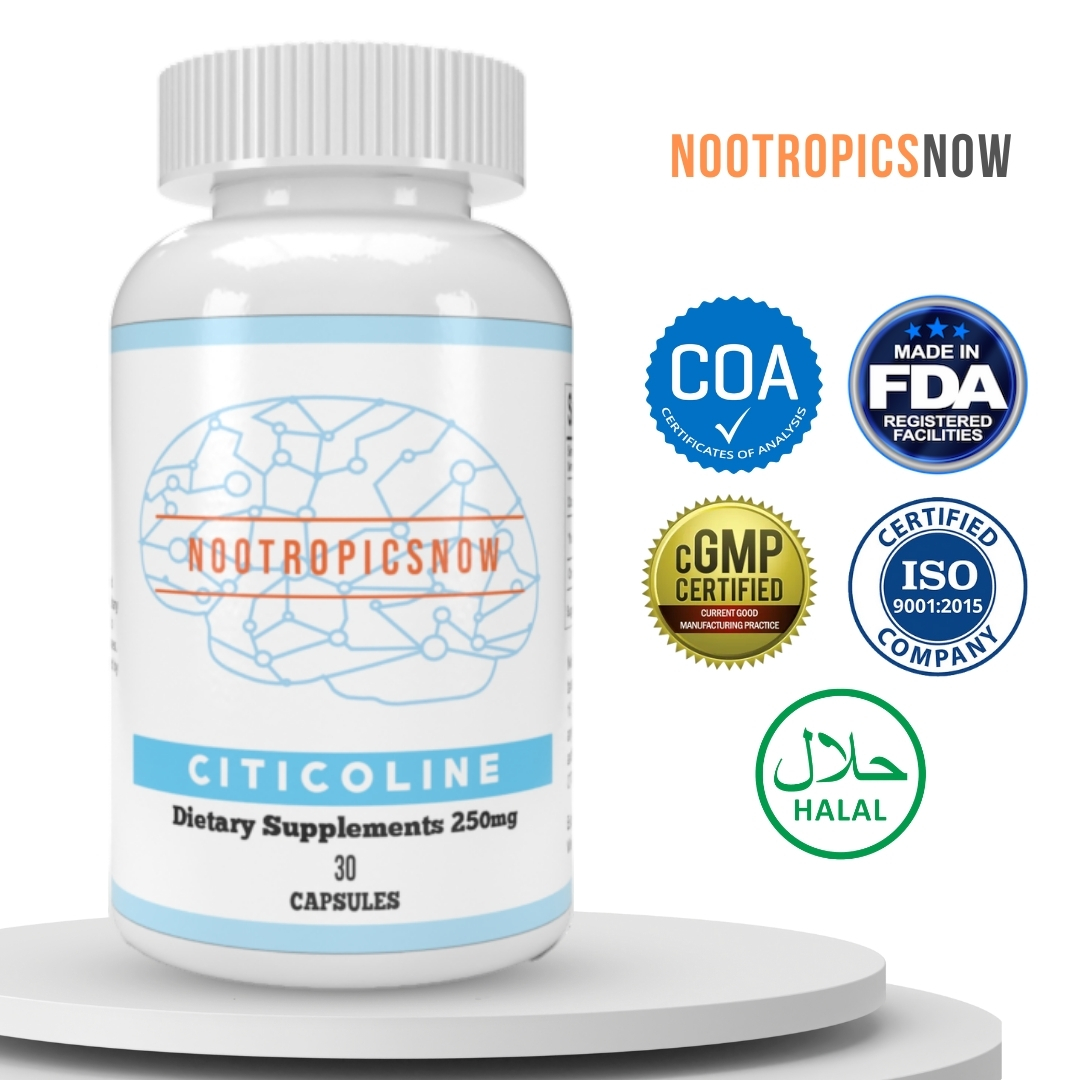Choline & Modafinil: Smart Stack Guide

Choline and Modafinil: A Synergistic Approach to Cognitive Enhancement
Modafinil is a popular eugeroic, prescribed for conditions like narcolepsy, shift work sleep disorder, and excessive daytime sleepiness. Its off-label use as a cognitive enhancer has also propelled its popularity. However, some users report side effects, including headaches. Enter choline, a vital nutrient and precursor to the neurotransmitter acetylcholine. Combining choline with modafinil has become a common practice among nootropics enthusiasts. This section explores the interaction between choline and modafinil, delving into the rationale behind this combination and potential benefits.
Understanding Choline: More Than Just a Nutrient
Choline is an essential nutrient, meaning the body cannot synthesize it in sufficient quantities, therefore dietary intake is necessary. It plays a vital role in several physiological processes, including:
Dietary sources of choline include eggs, liver, beef, soybeans, and certain nuts and seeds. While the body can produce some choline in the liver, this amount is typically insufficient to meet daily needs. Therefore, supplementation becomes crucial, especially when using substances that may deplete choline levels.
Modafinil’s Impact on the Brain: A Focus on Neurotransmitters
Modafinil exerts its wakefulness-promoting effects by modulating several neurotransmitter systems in the brain, including dopamine, norepinephrine, and histamine. The precise mechanisms are still under investigation.
However, its effects on these neurotransmitter systems can also lead to side effects, particularly when used regularly or at higher doses. Headaches are among the most commonly reported side effects. This is where choline supplementation enters the picture.
The Rationale Behind the Choline and Modafinil Combination
The primary reason for combining choline with modafinil is to potentially mitigate headaches associated with modafinil use. The theory is that modafinil increases acetylcholine turnover and demand in the brain, potentially leading to choline depletion. This deficiency could contribute to headaches and other cognitive side effects. Therefore, supplementing with choline aims to replenish these levels and alleviate these symptoms.
Some proponents also suggest that choline might enhance the cognitive benefits of modafinil. By providing more raw material for acetylcholine synthesis, it could theoretically improve memory, focus, and overall cognitive performance. However, scientific evidence supporting this claim remains limited.
Types of Choline Supplements for Modafinil Users
Several forms of choline supplements are available, each with varying bioavailability and effectiveness. The most common include:

View Product
CDP-choline and Alpha-GPC are generally considered superior options due to their higher bioavailability and ability to directly increase acetylcholine levels in the brain. However, they also tend to be more expensive than choline bitartrate or choline chloride.
Dosage Considerations for Choline and Modafinil Stacks
The optimal dosage of choline when combined with modafinil varies depending on individual needs and tolerance. A common starting point is 250-500mg of CDP-choline or Alpha-GPC taken alongside the modafinil dose. Some users may require higher doses to experience the desired effects, while others may find lower doses sufficient. It is advisable to start with a lower dose and gradually increase it until the desired effects are achieved.
It’s also essential to consider the timing of choline supplementation. Taking choline concurrently with modafinil may be more effective in preventing headaches than taking it at other times. However, individual responses may vary.
Potential Benefits of Combining Choline with Modafinil
While research on the specific combination of choline and modafinil remains limited, potential benefits include:
It’s important to note that these benefits are not guaranteed, and individual responses may vary. Some users may experience significant improvements, while others may notice little or no difference.
Potential Side Effects and Risks of Choline Supplementation
While generally considered safe, choline supplementation can cause side effects, especially at higher doses. Common side effects include:
Rare but more serious side effects include liver damage and increased risk of cardiovascular disease. It’s essential to consult a healthcare professional before starting choline supplementation, especially if you have pre-existing health conditions.
Lifestyle Factors and Modafinil
Beyond choline supplementation, several lifestyle factors can influence the effectiveness of modafinil and mitigate potential side effects. These include:
These lifestyle modifications can complement choline supplementation and optimize the benefits of modafinil.
Legal Considerations When Purchasing Modafinil
It’s crucial to be aware of the legal status of modafinil in your region. In many countries, modafinil is a prescription-only medication. Purchasing modafinil without a valid prescription may be illegal and can carry legal consequences. Always consult with a healthcare professional to determine if modafinil is appropriate for you and to obtain a valid prescription if necessary.
Conclusion: A Balanced Approach to Cognitive Enhancement with Modafinil and Choline
Combining choline with modafinil is a common practice among nootropics enthusiasts seeking to mitigate headaches and potentially enhance cognitive benefits. While research on this specific combination is limited, the rationale behind it is grounded in the understanding of modafinil’s effects on neurotransmitter systems and choline’s role in brain health. By choosing the right form of choline, optimizing dosage, and considering lifestyle factors, users can potentially maximize the benefits and minimize the risks associated with this combination. However, it’s essential to consult a healthcare professional before starting any new medication or supplementation regimen, especially if you have pre-existing health conditions. A balanced approach that incorporates both pharmacological and lifestyle interventions is key to achieving sustainable cognitive enhancement and overall well-being.
`markdown
Choline and Modafinil: A Synergistic Stack?
Many individuals combine choline with modafinil to potentially mitigate side effects and enhance cognitive benefits. Though modafinil primarily affects dopamine and norepinephrine, it may indirectly influence acetylcholine levels. Because choline is a precursor to acetylcholine, some users hypothesize that supplementation can optimize this neurotransmitter system, thereby enhancing overall cognitive function.
Understanding Choline
Choline is an essential nutrient that plays a critical role in various bodily functions. It’s necessary for cell membrane structure, neurotransmitter synthesis, and lipid transport. The human body can produce choline in small amounts. Therefore, dietary intake or supplementation is often necessary to meet requirements. Key functions include:
Dietary sources rich in choline include eggs, liver, beef, soybeans, and certain vegetables. However, many people may not consume enough choline through diet alone, leading to interest in choline supplements.
Different Forms of Choline
Several forms of choline supplements are available, each with varying bioavailability and effects. Some common types include:
Alpha-GPC and CDP-Choline are generally preferred for nootropic purposes due to their higher bioavailability and cognitive-enhancing properties. Many nootropic users report better results with these forms than with choline bitartrate or choline chloride.
The Rationale Behind Combining Choline with Modafinil
The primary reason people combine choline with modafinil is to potentially counteract certain side effects and enhance modafinil’s cognitive benefits. The proposed rationale includes:
However, it’s essential to note that scientific evidence supporting these claims is limited and largely based on anecdotal reports.
Potential Benefits of the Choline-Modafinil Stack
While more research is needed, users report several potential benefits from combining choline with modafinil:
It’s important to highlight that these benefits are subjective and not universally experienced. Individual responses can vary significantly.
Potential Side Effects and Risks
While generally considered safe, both choline and modafinil can have potential side effects. Combining them may increase the risk or severity of certain adverse effects.
Choline Side Effects:
Modafinil Side Effects:
Combining choline and modafinil may exacerbate some of these side effects. For example, both substances can affect sleep, so the combination may increase the risk of insomnia. Therefore, starting with low doses and monitoring individual responses is crucial.
Dosage Recommendations and Stacking Strategies
Finding the optimal dosage for the choline-modafinil stack requires experimentation. Several factors influence the ideal dosage, including individual sensitivity, body weight, and desired effects.
General Guidelines:
Specific Dosage Recommendations (Note: These are suggestions only, and medical advice should be sought):
Example Stacking Strategies:
It’s important to listen to your body and adjust the dosage accordingly. Documenting your experiences in a journal can help identify the optimal combination and dosage for your individual needs.
Alternative Nootropics and Cognitive Enhancers
Besides choline, other nootropics and cognitive enhancers can be used alone or in combination with modafinil to achieve specific cognitive goals. These include:
Exploring different nootropics can help you find the best combination to achieve your desired cognitive effects. However, thoroughly research each substance before use to understand its potential benefits and risks.
Lifestyle Factors for Cognitive Enhancement
While nootropics can be helpful, they are not a substitute for healthy lifestyle habits. Several lifestyle factors can significantly impact cognitive function:
By prioritizing these lifestyle factors, you can optimize your cognitive function and enhance the benefits of nootropics.
Legal and Ethical Considerations
Before using modafinil or other nootropics, it’s essential to consider the legal and ethical implications.
Adhering to legal and ethical guidelines can help ensure responsible and safe use of nootropics.
Consulting Healthcare Professionals
Always consult with a healthcare professional before starting any new medication or supplement regimen, including the choline-modafinil stack. A healthcare professional can assess your individual needs, identify potential risks and interactions, and provide personalized recommendations. They can also monitor your progress and adjust your treatment plan as needed. This is especially important if you have any underlying health conditions or are taking other medications.
Conclusion
Combining choline with modafinil is a strategy used by many individuals to potentially mitigate side effects and enhance cognitive benefits. While anecdotal reports suggest potential benefits, more research is needed to confirm these claims. Always start with low doses, monitor for side effects, and consult with a healthcare professional before starting any new regimen. Remember that lifestyle factors play a crucial role in cognitive function, and nootropics should not be a substitute for healthy habits. By approaching nootropics responsibly and ethically, you can potentially enhance your cognitive performance while minimizing risks.
`


